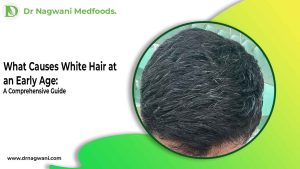Table of Contents
Hair loss is a concern that many individuals grapple with, and while various factors contribute to this phenomenon, one often overlooked aspect is calcium deficiency. In this article, we will delve into the intricate relationship between calcium levels in the body and the health of your locks.
Understanding Calcium Deficiency Causes Hair loss
Calcium deficiency causes hair loss due to its integral role in the hair growth cycle. Calcium supports cellular functions essential for maintaining strong and healthy hair follicles. Insufficient calcium levels may disrupt this cycle, leading to weakened hair structure, increased hair shedding, and potential thinning. Moreover, calcium deficiency may impact hormonal balance, further influencing hair health. Ensuring an adequate intake of calcium-rich foods or supplements is crucial for sustaining optimal hair growth and preventing the detrimental effects associated with a lack of this vital mineral.
Hair Growth Cycle and Calcium’s Role
To comprehend the impact of calcium deficiency on hair, it’s crucial to understand the hair growth cycle. Nutrients, including calcium, play a pivotal role in supporting this cycle, ensuring that your hair remains vibrant and strong.
Studies and Research: Connecting the Dots
Studies and research on calcium deficiency and its impact on health have unveiled compelling connections. Scientific investigations highlight the intricate relationship between insufficient calcium levels and various health conditions, including bone health, cardiovascular issues, and even hair loss. These studies delve into the physiological mechanisms, emphasizing the significance of maintaining optimal calcium intake. By synthesizing data from diverse research avenues, a clearer understanding emerges, providing valuable insights for both healthcare professionals and the general public. The findings underscore the pivotal role of calcium in overall well-being, contributing to ongoing efforts to enhance preventive and therapeutic approaches.
Other Nutrients Influencing Hair Health
While calcium is essential, it’s not the sole player in the quest for healthy hair. A well-balanced diet, rich in various nutrients, contributes to preventing hair loss and promoting overall well-being.
Symptoms of Calcium Deficiency: Is Your Hair Sending Signals?
Recognizing the symptoms of calcium deficiency is crucial. Beyond the conventional signs, paying attention to specific signals related to hair health can be an early indicator of an underlying issue.
- Muscle Cramps and Spasms:
- Calcium plays a crucial role in muscle function, and its deficiency can lead to cramps and spasms, especially during physical activity.
- Brittle Nails:
- Weak and brittle nails can be an indicator of calcium deficiency. Adequate calcium levels are essential for maintaining healthy nail structure.
- Tooth Decay:
- Calcium is vital for dental health. Deficiency may contribute to tooth decay and other oral health issues.
- Fatigue and Weakness:
- Insufficient calcium levels can lead to fatigue and overall weakness, affecting your energy levels.
- Osteoporosis:
- Severe and prolonged calcium deficiency may contribute to the development of osteoporosis, a condition characterized by weakened bones.
- Numbness and Tingling:
- Calcium is involved in nerve function. Deficiency may lead to sensations of numbness and tingling, especially in the extremities.
- Abnormal Heart Rhythms:
- Calcium is essential for the proper functioning of the heart. A deficiency may result in irregular heartbeats or other cardiovascular issues.
- Difficulty in Swallowing:
- In some cases, a lack of calcium may cause difficulty in swallowing, known as dysphagia.
- Poor Blood Clotting:
- Calcium is crucial for blood clotting. Deficiency may lead to difficulties in forming blood clots, potentially resulting in excessive bleeding.
- Impaired Cognitive Function:
- Calcium is involved in neurotransmitter release, and its deficiency may affect cognitive function, leading to difficulties in concentration and memory.
- Hair Loss:
- While not always immediately associated, calcium deficiency can contribute to hair loss or thinning of the hair over time.
- Skin Issues:
- Dry skin, eczema, and other skin problems may be linked to calcium deficiency, as the mineral plays a role in skin health.
- Menstrual Irregularities:
- Calcium is involved in muscle contractions, including those in the uterus. Deficiency may lead to irregular menstrual cycles.
- Depression and Anxiety:
- Some studies suggest a connection between low calcium levels and mood disorders, including depression and anxiety.
- Delayed Development in Children:
- In growing children, calcium deficiency can lead to delayed development of teeth and bones, affecting overall growth.
Preventing Calcium Deficiency: A Dietary Approach
Ensuring an adequate intake of calcium-rich foods is paramount for preventing deficiency. Learn about dietary sources and incorporate them into your meals to support not only your hair but your overall health.
Connection Between Calcium and Hormones: Unraveling the Mystery
Hormonal balance is vital for healthy hair growth. Calcium deficiency may disrupt this delicate equilibrium, impacting the way your hair responds to growth stimuli.
The connection between calcium and hormones is intricate. Calcium plays a pivotal role in regulating hormonal balance, influencing various endocrine functions. It acts as a secondary messenger in cellular signaling, impacting hormone secretion and reception. Adequate calcium levels contribute to the proper functioning of glands that produce hormones, ensuring a harmonious interplay in the endocrine system. Disruptions in calcium levels can disturb this delicate equilibrium, potentially leading to hormonal imbalances that may, in turn, affect various physiological processes, including those related to hair growth and health. Maintaining optimal calcium levels is essential for overall hormonal harmony and well-being.
Calcium Supplements: A Boon or Bane for Your Tresses?
While supplements can provide a convenient way to address calcium deficiency, understanding their impact on hair health is crucial. We explore the potential benefits and considerations when incorporating calcium supplements into your routine.
Lifestyle Changes for Healthy Hair: Beyond Nutrition
Incorporating lifestyle changes, such as stress management and regular exercise, can enhance the effectiveness of calcium in promoting healthy hair. It’s not just about what you eat but how you live.
Consulting a Healthcare Professional: The Expert’s Opinion Matters
When it comes to addressing concerns related to hair loss and calcium deficiency, seeking guidance from a healthcare professional is crucial. Dr. Anand Kumar Nagwani, a seasoned hair specialist with over 20 years of experience, is an ideal choice. Consulting Dr. Nagwani ensures expert advice tailored to individual needs, considering both the medical and cosmetic aspects of hair health. His extensive expertise allows for a comprehensive assessment of potential causes, personalized treatment plans, and valuable insights to promote optimal hair growth. Trusting in the guidance of a seasoned professional like Dr. Nagwani is a proactive step toward understanding and addressing hair-related issues effectively.
Myths About Hair Loss and Calcium: Setting the Record Straight
Contrary to common misconceptions, hair loss is not solely attributed to calcium deficiency. While calcium plays a role in overall health, including hair strength, other factors contribute significantly. Hair loss is a complex issue influenced by genetics, hormonal changes, stress, and nutritional balance. Relying solely on calcium supplements may not be a panacea. This article dispels myths, emphasizing a holistic approach to hair health, considering various factors like diet, lifestyle, and professional advice for effective prevention and management of hair loss.
Conclusion: Nourishing Your Locks from Within
In conclusion, maintaining optimal calcium levels is not just a matter of bone health; it’s a key player in the realm of hair care. By understanding the connection between calcium deficiency and hair loss, you empower yourself to take proactive steps toward healthier, more resilient hair.
FAQs About Calcium and Hair Loss
- Can calcium supplements reverse hair loss?
- While calcium is essential for overall health, supplements may not be a cure-all for hair loss. Consult a healthcare professional for personalized advice.
- How long does it take to see improvements in hair after addressing calcium deficiency?
- The timeline for improvements varies. Patience is key, and results depend on individual factors.
- Are there specific calcium-rich foods beneficial for hair health?
- Dairy products, leafy greens, and nuts are excellent sources of calcium that can contribute to healthy hair.
- Can calcium deficiency lead to permanent hair loss?
- In some cases, addressing calcium deficiency may reverse hair loss. However, irreversible damage can occur if the deficiency persists for an extended period.
- Are there lifestyle changes beyond diet that can help prevent hair loss?
- Yes, managing stress, regular exercise, and proper hair care routines contribute to overall hair health.



